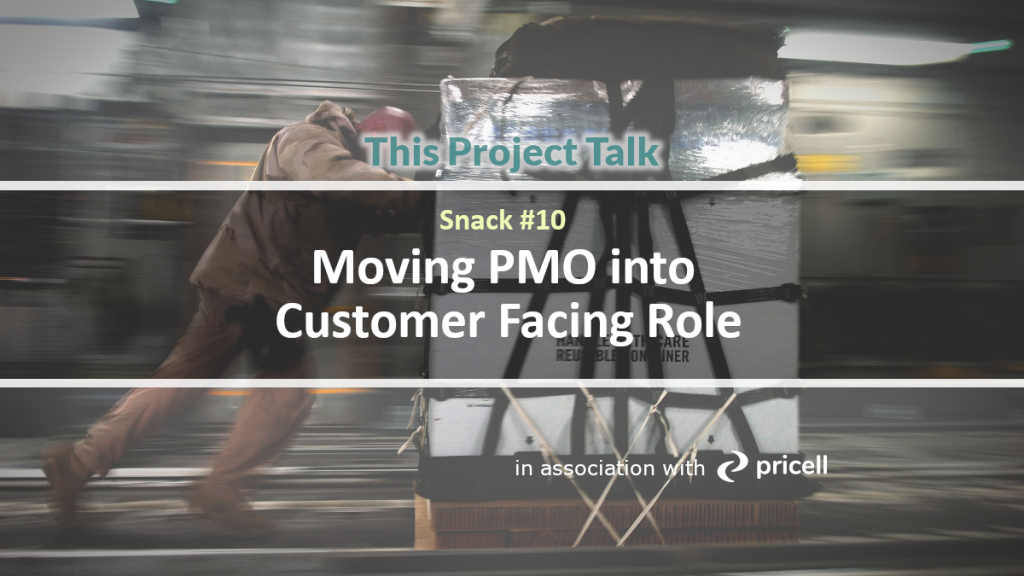
Does Have Today’s PMO Issues?
Watching resources like PMI or simply LinkedIn there is a lot of discussion going on about the value of PMO, the role of PMO, the future of PMO, …
While Project Management is a very well-established profession and practice - all (literally) industries accepted project management very well into everyday practice. A lot of things are delivered now as projects.
Starting from church refurbishing to big construction projects, or vaccine development. There is and will be demand for Project Managers.
Why PMO is not the same?
The answer is simple. It was never intended to be the same extent as Project Management.
Project managers are an integral part of project investment yet is this commercial project or internal. But PMO is NOT, as PMO operates on level up to project.
PMO is 90% cases an internal cost center not related to project investment. Also, PMO makes sense if there is a number of projects or just a few but rather complex that need to be governed.
Those reasons by itself makes a big gap in demand for PMO in comparison to Project Management.
Can we make PMO more useful and make it customer-facing then? Specifically, with commercial projects? Let’s discuss this a bit.
PMO vs Project Management vs Program Management
Let’s start form definitions.
Project Management – we all know what it is and there is a fairly good consensus on this function globally. It is a fundamental part of a project. And no one can imagine a project without this function. For external projects Project Manager is billable.
Program Management - the most common definition, in my view, is a role responsible to deliver single combined value from multiple projects (portfolio) for customers, and projects are related to each other. A synchronization between projects in a program portfolio is needed to maximize business outcomes. Projects Managers cooperate with Program managers in full synchronization. The Program Manager is in fact most central customer (external or internal) facing role.
PMO (Program Management Office) is working on a project portfolio, but those projects are not related to each other. This portfolio is important to the mother organization. In a sense, the mother organization wants to have visibility over the portfolio and tasks PMO to govern the portfolio. It could be status reporting visibility, making sure standards are used, financial transparency, or crafting delivery excellence. It is very much in-house function.
In this sense, I strongly distinguish the Program Manager role from the PMO role. Many times, Program Management on customer projects is confused with internal PMO.
Taking the above, PMO in it’s most essence back-office role. If PMO governs the internal portfolio, it is a customer-facing role to internal sponsors.
But if PMO governs commercial projects portfolio it is not really a customer-facing role. Thus, it is not billable.
PMO as Customer Facing Quality Assurance
When an organization is delivering to external customers the easiest way to increase the value of PMO is to try to make it billable. Make it part of the project.
It will work rather only for complex projects.
What is the customer interested in right after contracting the project?
It is delivered without major issues. And provides value.
And here is where PMO can play a role. Many projects need more than just project management to build delivery confidence in a customer.
And PMO can be part of the offer as a strong Quality Assurance component.
On bigger, more complex projects PMO can be proposed to provide scheduled audits. And customer is aware of this and in fact, it becomes part of the project.
It should never be too long. Just a few days. No one on a project can effort having PMO on neck for more than a few days.
In most cases, an audit can improve many simple issues that may arise over time. Like communication plan or scope management. Often portfolio PMOs in most cases are very qualified project/program managers from the past. They know the craft.
"If PMO governs commercial projects portfolio it is probably not a customer-facing role. Thus, it is unlikely billable"
Audits should include a customer satisfaction check. As well as a general review of the project health check. During those sessions' customers can express their concerns as it would not to the regular project team. It also demonstrates the ability to listen to suppliers’ organizations.
For not commercial projects (internal customers) PMO can happily play the role of program management. Making sure it delivers not only governance and standards, but making sure delivery is successful per each project. In fact, PMO can become a central contact point for all projects within organizations.
Why PMO?
Someone can say. “Hey, This all could be done also by the Program Manager”.
Yes. But firstly, many projects don’t have Program Manager and don’t qualify to have them. They simply cannot afford this role and makes little sense to have them.
Because PMO works on an independent portfolio it can be shared on that portfolio for this activity, unlike Program Manager. For commercial projects can be involved as billable for very short of time, which customers mostly can afford.
Secondly, PMO is more biased on delivery excellence and standards. This gives him a unique capability to do short audits, over Program Manager, which is primarily focused on value.
Lastly, PMO can be perceived as more independent than the Program Manager in its assessment over the project performance
Final Conclusion
PMO is never going to match Project Management's popularity.
PMO is mostly internal function to improve visibility, standards adoption, and delivery excellence.
It has its value for an organization when a number of projects is growing.
Can be PMO more customer-focused? Yes
Can be part of projects or programs, rather outside governance body? Yes
Can it be more customer oriented? More billable? Yes
PMO drives better quality assurance. And the demand for this dramatically increases demand with bigger or complex projects.



